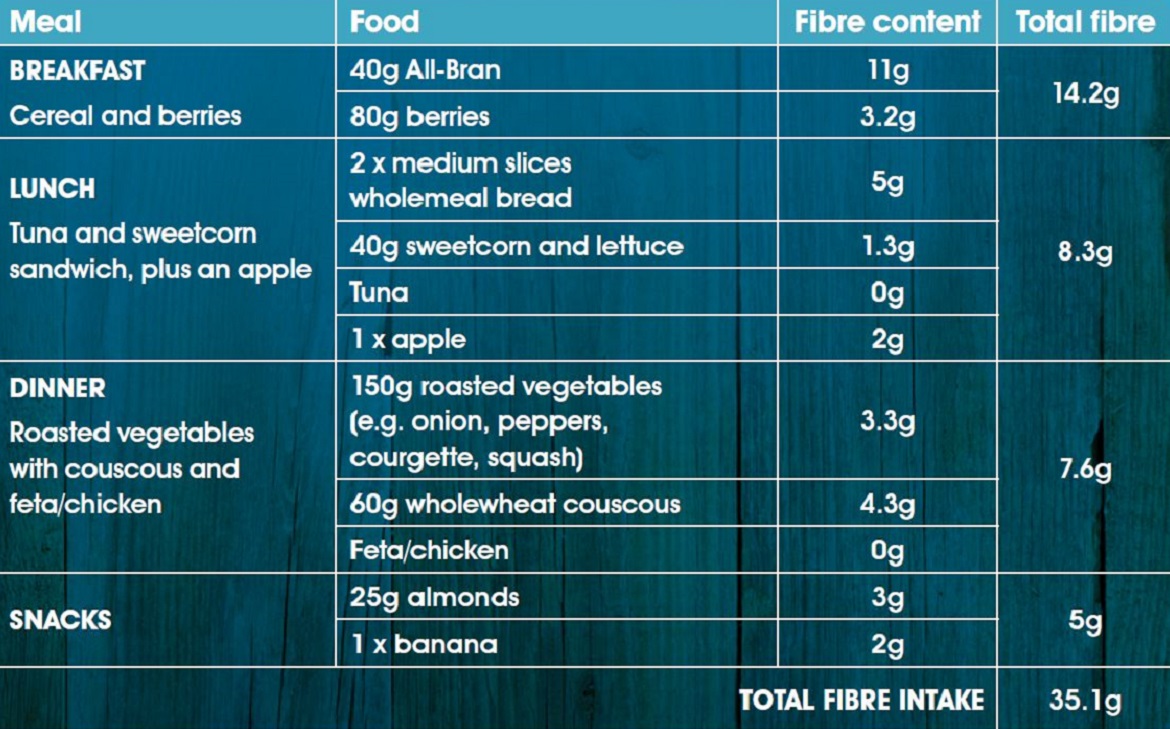Fibre is found in plant-based foods and is essential for maintaining a healthy digestive system. There are two types of fibre:
- Soluble fibre dissolves in water in the gut. It can help prevent and relieve constipation and also plays a role in reducing blood cholesterol. You'll find it in oats, apples, bananas, carrots, beans and peas.
- Insoluble fibre isn't digested, so provides bulk and helps move food through the digestive system faster to maintain healthy regular bowel movements. It's found in cereals, brown rice, nuts and seeds (especially linseeds).
Eating a varied diet that includes plenty of fruit, vegetables, wholegrains, pulses and nuts will provide you with both types of fibre. See the below table which shows how you can achieve the recommended 30g fibre a day intake.


